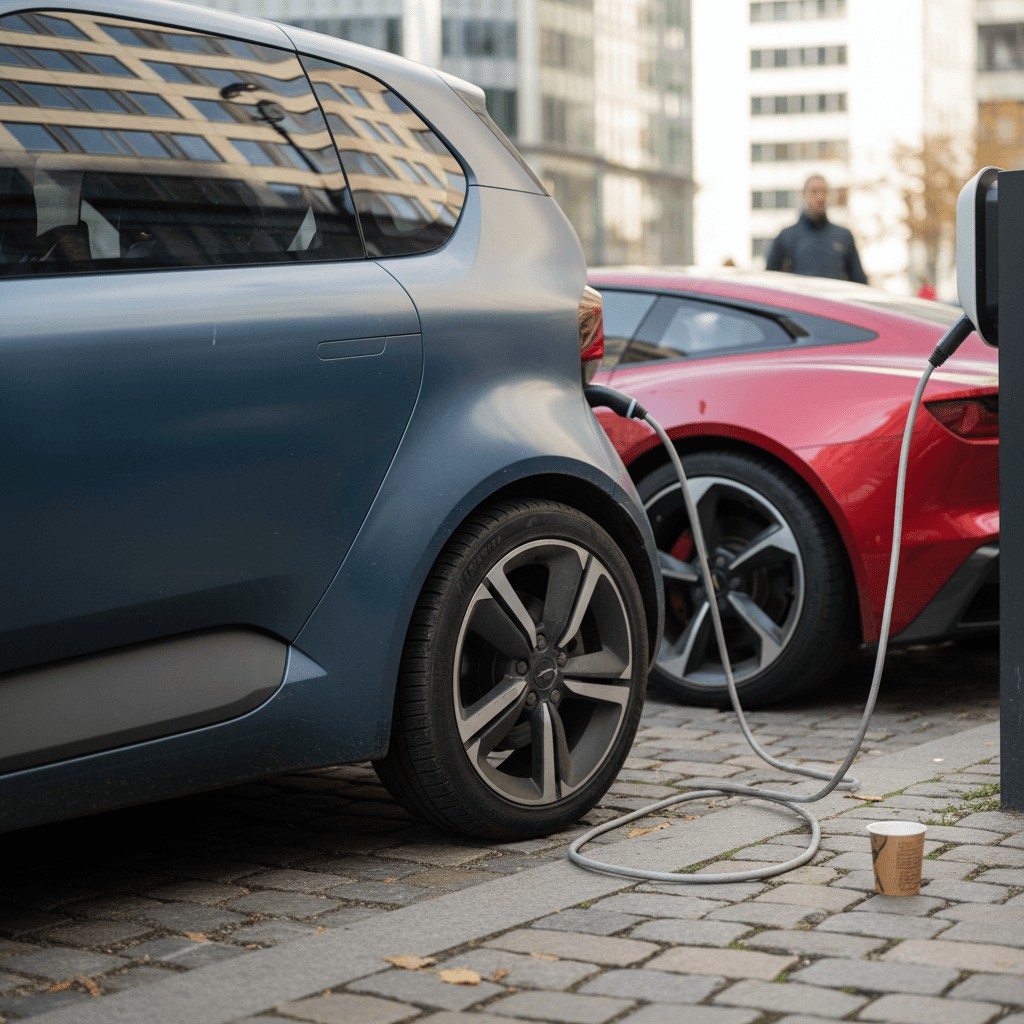If you own, or are thinking about buying, a 2017 Chevy Bolt, you’ve probably heard stories about battery recalls, fire risks, and scary-sounding replacement bills. It’s natural to wonder what a 2017 Chevy Bolt battery replacement cost really looks like in 2025, and whether you’re one failure away from a five‑figure repair.
Short answer
2017 Bolt battery replacement cost at a glance
2017 Chevy Bolt battery cost snapshot (2025)
GM doesn’t publish a neat menu price for a 2017 Bolt battery, and dealer quotes can vary. But between parts, labor, shop fees, and taxes, a full high‑voltage pack replacement is a five‑figure repair. Even so, most 2017 owners are protected by a mix of recall coverage and the original battery warranty, so understanding which bucket you fall into matters more than the scary retail number.
Prices can vary widely
Why 2017 Bolt batteries are a special case
If you were talking about a random 2017 EV, the battery story would be simple: slow degradation over time, the occasional failure, and a big bill if you’re out of warranty. The 2017 Chevy Bolt is different because of its high‑profile battery recall tied to rare fire risks.
- Early Bolt packs had a manufacturing defect that, in rare cases, could lead to fire when charged to high state of charge.
- GM responded with multiple software updates and finally a large‑scale battery replacement campaign.
- Many 2017 Bolts received brand‑new or remanufactured battery packs, effectively resetting their battery age.
- Owners whose packs were replaced often received slightly increased range versus the original 2017 EPA rating.
What that means for you
Real-world 2017 Chevy Bolt battery replacement costs
Let’s look at what owners and shops have reported for 2017 Chevy Bolt battery replacement cost. Exact numbers vary, but the pattern is consistent: this is one of the most expensive components in the car.
Typical cost ranges for 2017 Chevy Bolt battery work
These ranges are drawn from real‑world owner reports and EV service trends as of 2025. Your actual quote may differ.
| Scenario | What’s Done | Owner Cost Range | Notes |
|---|---|---|---|
| Recall pack replacement | Full high‑voltage pack replaced under recall | $0 | Parts and labor covered when recall applies and is performed at a Chevy dealer |
| Warranty replacement (non‑recall issue) | Full pack replaced under 8‑year/100k‑mile battery warranty | $0 | Applies if GM confirms a defect or capacity loss that meets their criteria |
| Out‑of‑warranty full pack | Complete pack replaced with new or reman unit | $12,000–$16,000+ | Dealer quotes often land in this band, sometimes higher with taxes and fees |
| Module‑level repair (rare) | Individual modules or components repaired | $3,000–$8,000 | Less common; GM generally prefers full pack replacement over deep repairs |
| High‑voltage labor/diagnostics only | Testing, software, minor hardware | $300–$1,500 | If the issue ends up being software, wiring, or BMS-related, not the cells themselves |
Battery work can range from four‑figure repair bills to five‑figure pack replacements, largely depending on warranty and recall status.
The pack is most of the car’s value
Warranty & recall coverage for 2017 Bolt batteries
Before you stress about paying $15,000 for a battery, you need to know where your particular 2017 Bolt sits in the warranty and recall maze. In many cases, the answer to “What will this cost me?” is happily “Nothing.”
Key protections for your 2017 Bolt battery
These are the shields standing between you and a five‑figure repair.
High-voltage battery warranty
Recall coverage
Software updates & diagnostics
Check your specific car
Signs your 2017 Bolt battery may need attention
You don’t need to be an engineer to spot a Bolt battery that deserves a closer look. The car’s behavior will usually tell you when something’s off, if you’re paying attention.
- Noticeable, sudden loss of driving range over weeks or months, not just seasonal swings from weather.
- The car refuses to charge past a certain percentage, even on different chargers.
- Warning lights related to the high‑voltage battery, powertrain, or reduced power mode.
- Unusual fan noise or the car frequently limiting power, especially at moderate temperatures.
- A recall notice or service bulletin specifically mentioning the battery or charging behavior.

If you suspect a serious issue
Your options if a 2017 Bolt battery fails
If diagnostics point to a bad 2017 Bolt battery, you still have choices. The right move depends on warranty status, recall coverage, and the overall condition and value of the car.
Step-by-step choices when facing a battery issue
1. Confirm recall and warranty coverage
Before doing anything else, verify whether your car is included in the recall and how much battery warranty remains. This alone may turn a five‑figure problem into a <strong>$0 repair</strong>.
2. Get multiple dealer opinions
If one dealer recommends an expensive out‑of‑pocket replacement, it’s reasonable to seek a second opinion, especially if symptoms are vague. Battery errors can sometimes be software or wiring, not the pack itself.
3. Compare repair cost to vehicle value
For an older EV, a $15,000 pack in a car worth $14,000 rarely makes financial sense. If the repair isn’t covered, ask yourself whether that money is better spent on <strong>another used EV in better shape</strong>.
4. Consider selling or trading in as-is
If you own the car outright or owe less than it’s worth, you may be better off selling or trading in rather than repairing. A marketplace that understands EVs, like <strong>Recharged</strong>, can factor battery health into a fair offer.
5. Explore specialist EV shops
In some regions, independent EV specialists can perform <strong>module‑level repairs</strong> or source refurbished packs for less than dealer retail. Availability is still limited, so this varies by area.
6. Document everything
Keep a paper trail: service records, dealer diagnostics, recall letters, and range logs. This documentation can help with warranty approval, resale conversations, or future claims.
When repair might make sense
- The car is in otherwise excellent condition with low mileage.
- You plan to keep it for many more years and value the fresh battery.
- You can secure financing at reasonable rates instead of draining savings.
When it’s time to move on
- The repair quote is similar to, or higher than, the car’s market value.
- You were already thinking about upgrading to something newer or with more range.
- You can get a strong trade‑in or cash offer that reflects the situation.
How battery costs affect used 2017 Bolt values
Used EV shoppers are smart. They’ve heard the same horror stories you have, and they’re factoring battery costs into every offer. For the 2017 Bolt, battery history is now just as important as mileage or trim line.
Battery history that boosts (or hurts) value
If you’re buying or selling a 2017 Bolt, these details matter.
Recall pack completed
Partial recall / software only
Open recall or battery warnings
Think like a buyer
How Recharged evaluates Chevy Bolt battery health
Because the battery is the heart of any used EV, Recharged doesn’t treat it as a mystery box. When we inspect a 2017 Bolt, or any EV, we look past the odometer and dig into the pack itself.

What goes into a Recharged Score for a 2017 Bolt
Battery health isn’t a guess, it’s measured.
Battery health diagnostics
Recall & service history
Pricing tied to battery reality
Buying or selling a Bolt through Recharged
FAQ: 2017 Chevy Bolt battery replacement
Frequently asked questions about 2017 Bolt batteries
The bottom line on 2017 Bolt battery costs
The idea of replacing a 2017 Chevy Bolt battery out of pocket is enough to make anyone’s stomach drop. But in the real world, most owners never pay that five‑figure bill thanks to GM’s recall campaign and long battery warranty. The key is knowing where your specific car stands: has the pack been replaced, is the recall complete, and how much warranty is left on the clock?
If you’re shopping for a used 2017 Bolt, don’t be scared off, just be picky. Prioritize cars with documented recall work, recent battery diagnostics, and transparent range behavior. And if you’d rather not navigate that battery math alone, shopping through Recharged means every EV comes with a Recharged Score Report, expert guidance, and pricing that already bakes in the true state of the pack.

